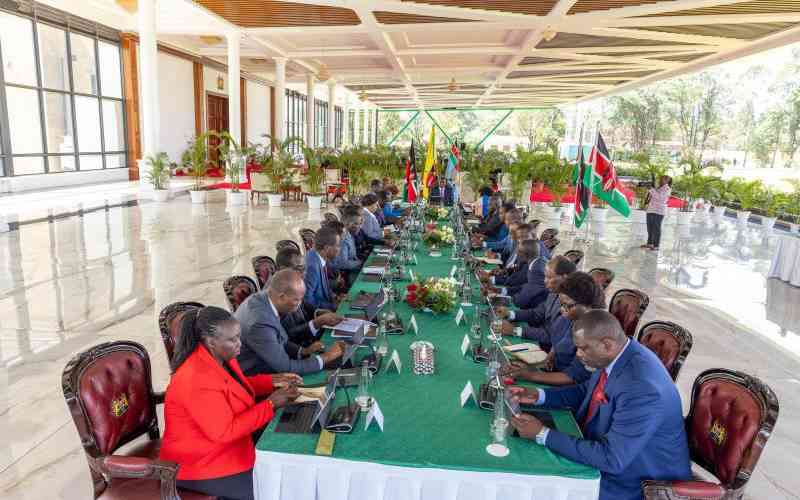How Nigerian Federal Lawmakers Use Streetlights, 'Empowerment' Schemes To Loot N100Billion Annually Through Constituency Projects -Civic Watchdog | Sahara Reporters
According to him, initially, legislators focused on opaque “empowerment” initiatives, envelope cash handouts, training programs, and the distribution of small-scale equipment.
A civic tech organisation, MonITNG, has decried the unabating corruption bedevilling Nigeria’s constituency project framework, berating members of the National Assembly and other political actors for turning the once-promising initiative into a “vehicle for systemic abuse.”
In a statement released on Thursday, its founder, Uadamen Ilevbaoje, said that rather than serving the purpose of providing the dividend of democracy to rural communities as its original target was, constituency projects have become a new face of official corruption in the country.
Ilevbaoje traced the origin of constituency projects, now called Zonal Intervention Projects (ZIPs), to 1999 under the administration of former President Olusegun Obasanjo.
The projects were intended to bridge development gaps in rural areas by aligning federal resources with grassroots needs.
“However, what started as a pathway to inclusive development has been transformed into a vehicle for systemic abuse,” Ilevbaoje said.
“Instead of delivering tangible improvements, the ZIP framework now facilitates unchecked corruption, fuels misappropriation of public funds, and shields lawmakers from accountability.”
He noted that N100 billion is allocated annually to 469 members of the National Assembly, 109 senators and 360 members of the House of Representatives, for the nomination of constituency projects across Nigeria’s 774 local government areas.
Yet, citizens continue to witness abandoned or substandard projects.
“What was once a noble policy to uplift local communities has become a profiteering scheme for many lawmakers and their preferred contractors,” Ilevbaoje said.
Ilevbaoje outlined how patterns of exploitation have evolved over time.
According to him, initially, legislators focused on opaque “empowerment” initiatives, envelope cash handouts, training programs, and the distribution of small-scale equipment.
These programs, he said, often inflated their cost on paper while delivering little on the ground.
He said, “The patterns of abuse have evolved. Initially, lawmakers leaned heavily on so-called "empowerment" projects, training programs, handouts, and small-scale equipment distribution, often shrouded in opacity.
“Beneficiaries would receive token amounts in envelopes, while lawmakers declared inflated sums.
“In recent years, the focus has shifted to infrastructure, particularly solar-powered street lights, under the guise of development.”
Ilevbaoje added, “These projects, often branded with the images of lawmakers as “donations,” are not only technically complex and costly but also difficult to monitor.
“In many communities, only a few lights are installed, and most fail within months, raising questions about value for money and the integrity of execution."
According to Ilevbaoje, the shift serves two purposes: “It creates the illusion of visible development and opens opportunities for inflated contracts. Lawmakers and contractors benefit financially, while citizens are left with dysfunctional or non-existent infrastructure.”
Ilevbaoje further noted that MonITNG also uncovered a new trend of duplicating projects across separate budget lines to inflate allocations.
“A new trend has emerged, duplicating projects across separate budget lines to maximise allocations,” he said.
“Lawmakers now exploit both the Zonal Intervention Project (ZIP) and the Economic Recovery and Growth Plan (ERGP) frameworks by securing funds for the same project from two sources within the same ministry.”
He cited Project Code ZIP20240362, which allocated the sum of N75 million for a cassava training program in Bende, Abia State, and another N96.5 million under ERGP5212175 for a similar project in the same location, both tied to the National Root Crops Research Institute, Umudike.
He pointed to Project Code ERGP2317360, which is budgeted at N210 million for the installation of solar-powered street lights in Abia North Senatorial Zone, as an example.
The executing agency is the Federal Ministry of Agriculture and Food Security.
He said, “A ministry focused on food systems and agricultural policy is now expected to deliver complex electrification projects.”
“This mismatch creates inefficiency and makes oversight even more difficult, giving lawmakers more room to influence the process behind closed doors,” he warned.
Ilevbaoje stated that even when projects are executed, the outcomes are often dismal.
“Even when constituency projects are implemented, they are often poorly executed. Roads break down within weeks of completion. School blocks are half-finished. Market stalls and drainage systems are constructed with weak, unsafe materials,” Ilevbaoje said.
“Contractors prioritise profit over quality, and in the absence of meaningful supervision, they face no consequences.”
According to him, some projects exist only on paper, while supposedly “completed” infrastructure either barely functions or doesn’t exist at all.
He noted that in other instances, empowerment funds are disbursed in cash envelopes without documentation or public registers.
Follow the Sahara Reporters channel on WhatsApp: https://whatsapp.com/channel/0029VaFClvtH5JM6SSsP7M2Y








